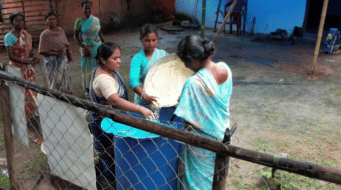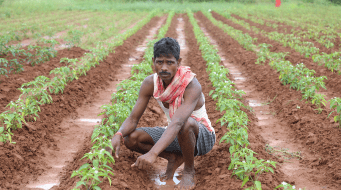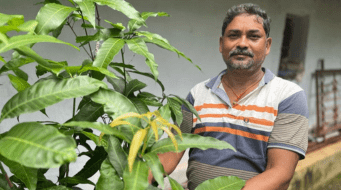by Rutuja Chavan & Sanjana Roy
Wildlife Week is observed annually in the first week of October. This week encourages us to reflect on the larger ecosystem and our relationship with it, with the goal of promoting wildlife conservation and protection.
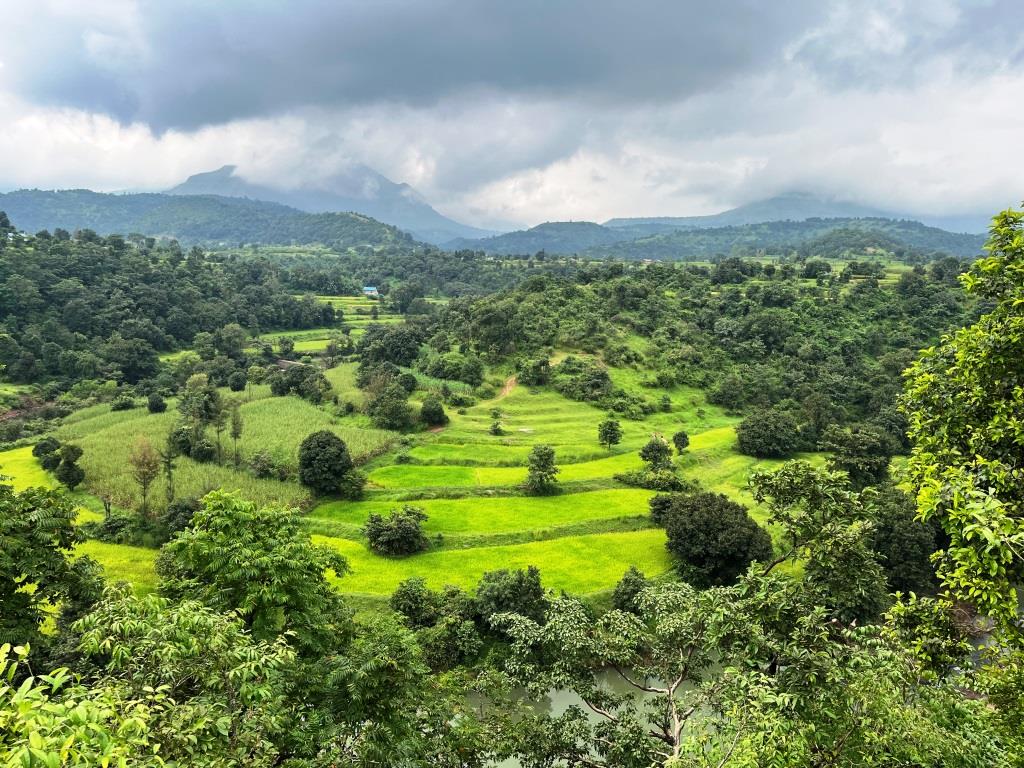
WOTR celebrated this occasion with villages in the Akole block of Ahmednagar district in Maharashtra, with whom we have worked closely for decades. Wildlife conservation is an integral part to strengthening ecosystems, an essential element of the EbA (Ecosystem-based Adaptation) approach that WOTR follows to promote sustainable rural livelihoods. A grassroots approach to wildlife protection and management leads to more holistic solutions that tackle the heart of socio-ecological issues. With the objective of encouraging community-led initiatives for wildlife conservation, WOTR hosted an event at the Zilla Parishad School in Purushwadi, bringing together Sarpanchs and Gram Panchayat members, locals, Village Development Committee members, and school children from the nine nearby villages, along with the Forest Officers of the region. The event discussed concerns and issues around wildlife management and conservation.
As new joinees of the organisation, we were asked to come along for this event, fulfilling WOTR’s rite of passage for all its employees to visit the field.
The Journey to Purushwadi
As we left for the trip, the retreating monsoon was in full swing. While the weather constituted a very pleasant chill and mist, the force of rain exposed a never-ending series of potholes throughout our route. Despite the bumpy ride, Akole presented us with stunning scenery of rolling green hills and lush agricultural fields. WOTR’s impact in the region was strikingly evident: trenches in the hilly landscape to control soil erosion and water runoff were seen everywhere. These projects belonged to decades-long work from when Hermann Bacher, co-founder of WOTR, began devoting his time to watershed development in rural Maharashtra.
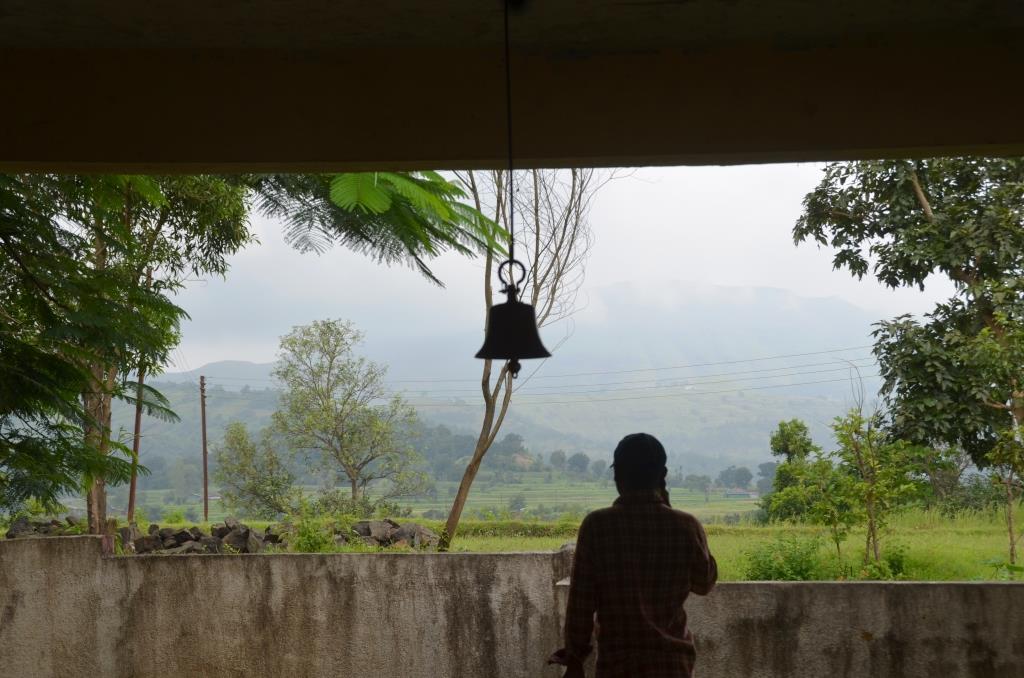
We arrived in Purushwadi to find more winding, bumpy uphill roads. We were going to spend the night at a local homestay, a simple four-room house on a raised platform overlooking the region’s paddy and sugarcane fields and hills. Our host welcomed us with a tasty and simple meal of chapati, coconut chutney, sabzi, dal, and rice. A grassy path through one of the fields led to an outhouse toilet – a somewhat perilous journey given the two snakes we encountered next to the house, albeit non-poisonous. Our request to sleep outside in the cool breeze was quickly withdrawn when the terrifying mention of leopards roaming the tall, grassy fields was made. Despite this lingering fear, our stay here was pleasant and conveniently located near the village school.
Beginning the Event
Our arrival at the school was met with the buzz of children playing and the aroma of a communal lunch being prepared by the kind and hospitable local SHG women in large, steaming pots. As people trickled in, we were surprised to see the camaraderie between the Government officials, local WOTR representatives, and the community. The lengthy introductions and on-stage acknowledgements that everyone received for their participation, also spoke to the respect that the Akole people have for each other, especially their elected representatives.
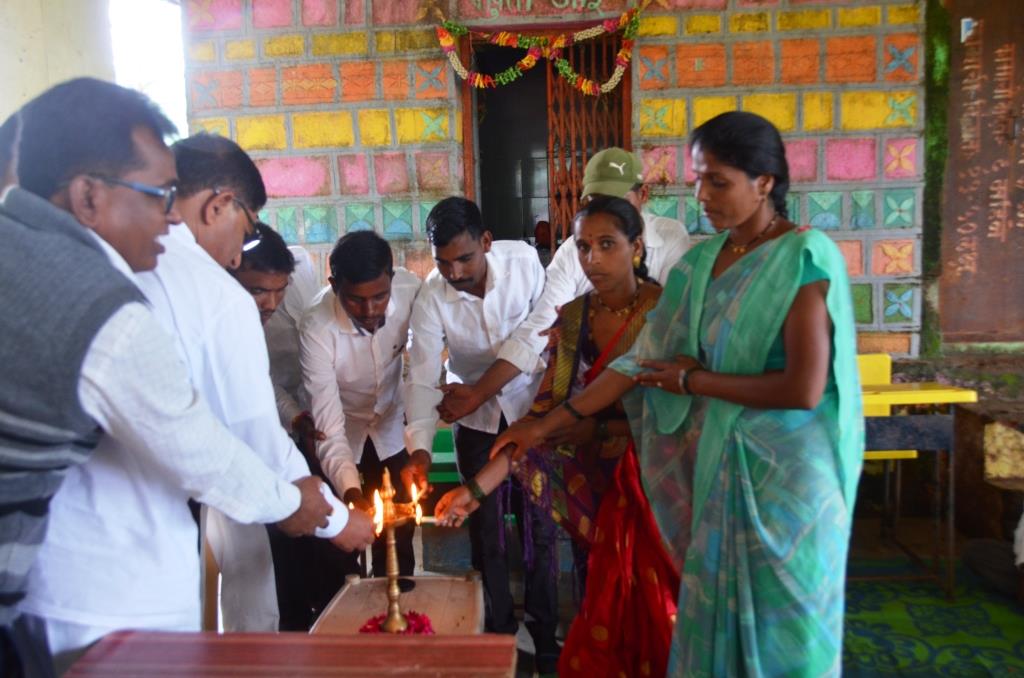
Dr. Imran Khan and Dr. Saurabh Purohit, researchers at W-CReS, initiated the event by speaking about the need for Nature-based solutions (NbS) to conserve animal habitat and avoid human-wildlife conflict. Mr. Prashant Kalaskar, WOTR Assistant Manager (Technical), Sangamner and moderator of the event, gave an overview of WOTR’s ongoing work and an understanding of the EbA concept. This was followed by presentations from Mr. Lande (Forest Range Officer) and Mr. J.D. Arote, Professor and Head of Department, Zoology, Deshmukh Arts, Science, and Commerce College of Rajur talking about conservation laws and local ecosystem dependencies.
The Discussion: Deforestation, Human-Wildlife Conflict, and Related Regulations

Much of the initial discussion focused on the protection of habitat ecosystems, an approach central to wildlife conservation. Villagers talked about how the decline in forest cover has huge implications for ecosystems and those who depend on forest environments. “Deforestation and increasing urbanisation have wiped out animal habitats, forcing them to encroach our villages and fields. This brings animals and humans in much closer contact due to shared sources of sustenance, encouraging human-wildlife conflict at different scales,” pointed Shashwat Gaon’s Sarpanch. His statement reminded us of the leopards that hide in the sugarcane fields in search of easily available domestic prey.
We noticed how the discussions among the community pointed to the wealth of knowledge villagers have about their ecosystem and its inhabitants. One participant mentioned that Adivasis (tribal population) make up a large percentage of the village population. Mr. Lande emphasised, “Jungles are nature’s wealth and should be protected by the community.” In the context of EbA, employing traditional wisdom and values is encouraged to deal with issues like human-wildlife conflict.
Although everyone agreed that measures needed to be taken to reduce conflict, the villagers were still interested in understanding the legalities behind human-wildlife interactions when incidents do occur. Their concerns included both the protection of their farms and property as well as the protection of the wild animals that posed a threat to them. Mr. Lande explained various laws for wildlife and biodiversity protection along with compensations for conflict incidents. The villagers seemed to be most engaged in this part of the event and towards the end of a meaningful Q&A session, all villages requested a copy of the relevant laws.
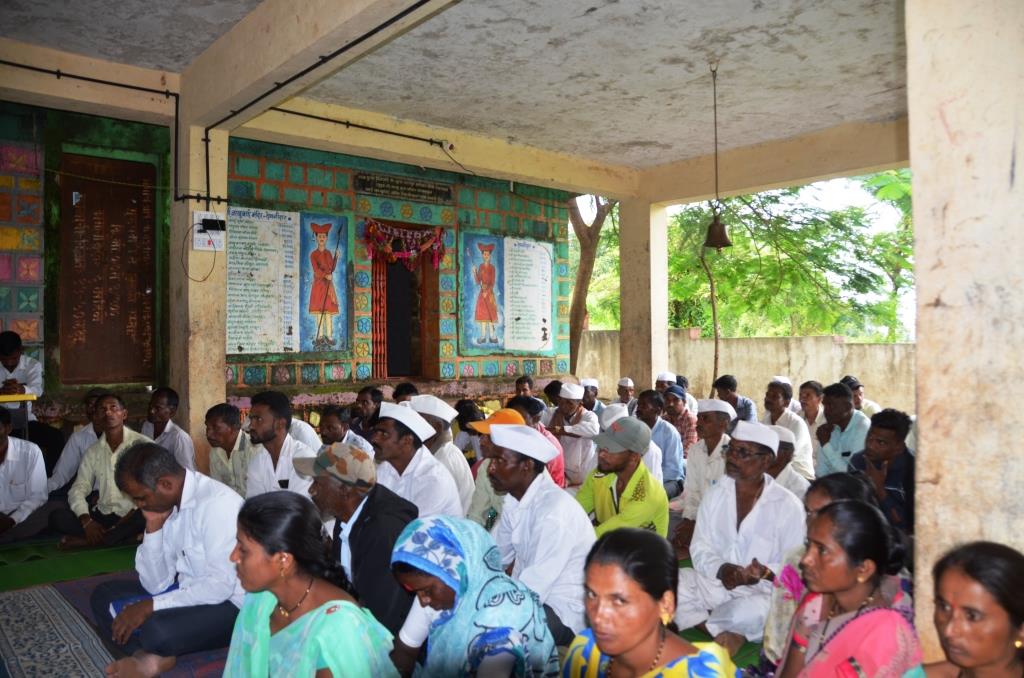
The Importance of Youth Involvement
At the end of the event, prizes were handed out to students who excelled in the drawing and essay-writing competitions WOTR had organised, encouraging the children to express their understanding of their ecosystem. The students shyly went up the stage to speak about their essays and drawings while receiving their prizes. One of the students wrote in his essay, “Wildlife, such as peacocks, sparrows, leopards, foxes, vultures, etc., adds to the grandeur of nature. Maintaining a balance of wildlife in nature enhances nature’s appearance.”
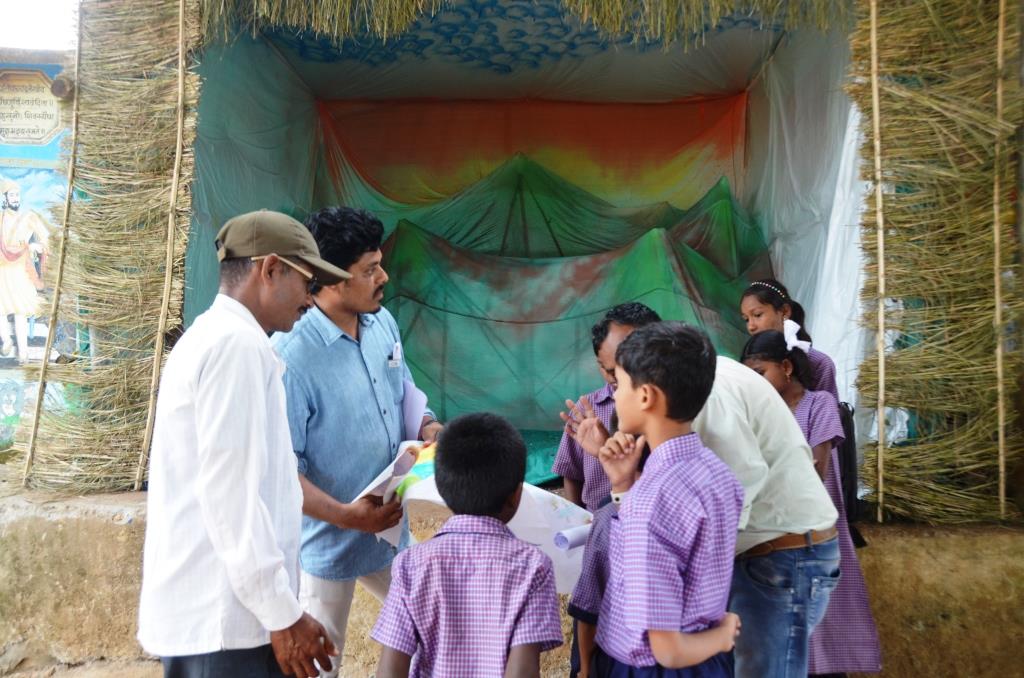
Moving Forward
This event was the first among a series of workshops that WOTR will be designing to engage village communities and their students in implementing EbA projects that emphasise biodiversity conservation measures. Through encouraging participatory governance, EbA practices involve communities in adopting a holistic approach to strengthening ecosystems. Only an informed public will be able to drive conservation projects locally in their communities, ensuring sustainable livelihoods and resilient environments.
Winding up the event, Prashant Kalaskar concluded by saying, “With the guidance of WOTR and support of Forest officers, the villages will now collectively be looking at conservation as a critical issue, not only for ecosystem management but also for resilient incomes.” WOTR’s long-held relationship with the villages of Ahmednagar would allow it to strongly guide participatory and community-based wildlife conservation practices in the district.
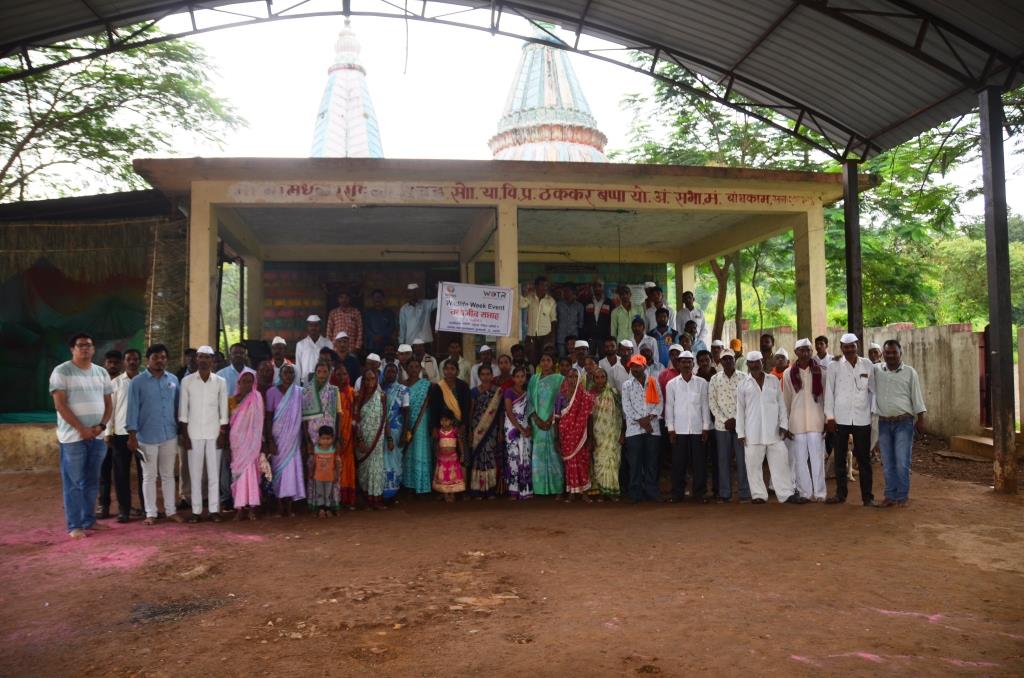
After a photo session and a filling communal lunch of chapati, potato curry, rice and lapsi (Indian dessert), we embarked on our return journey via the same bumpy road, bidding farewell to the lush, green hills amidst the rains, still in full swing.

